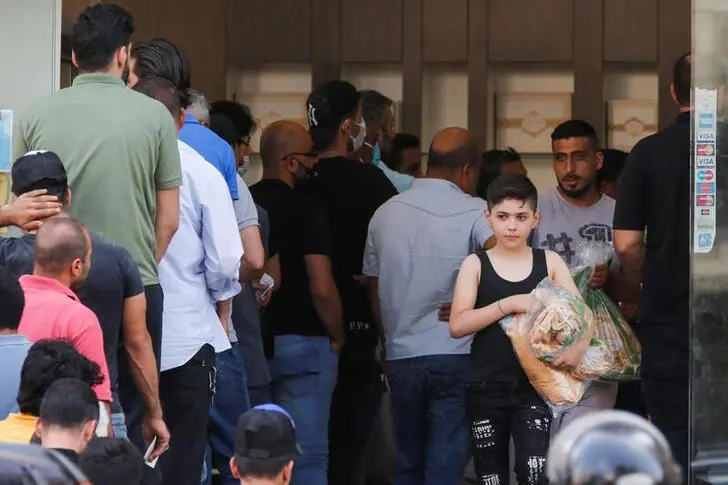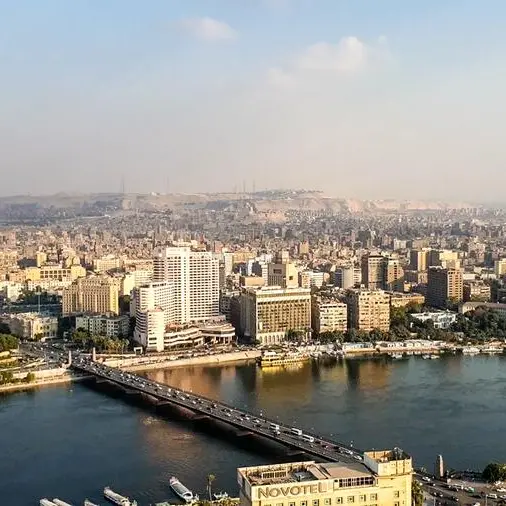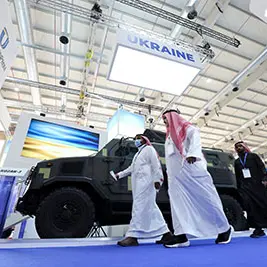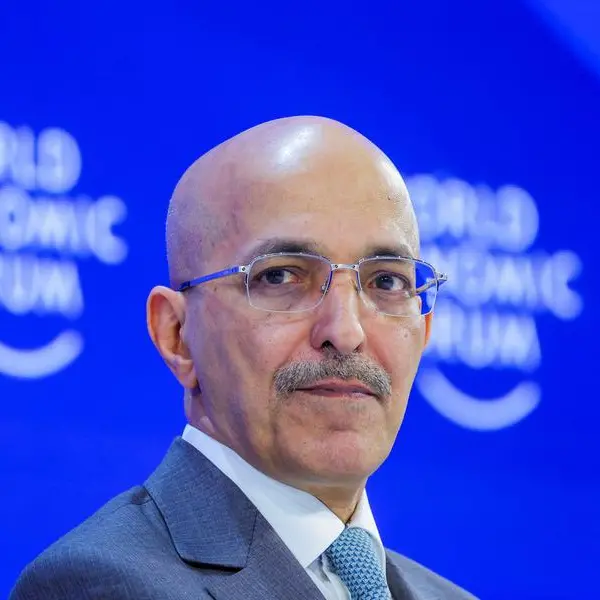PHOTO
BEIRUT: You see the surging line of people before you even have a chance to lay eyes on the church itself, weaving right around the block into the narrow alleyways of Beiruts eastern suburb of Sin al-Fil.
For those unversed with Lebanons economic crisis, it would appear at first glance nothing more than an ordinary albeit much busier than usual service. A religious holiday perhaps. Maybe even a celebration of sorts.
But take a closer look and you will see that the mood here is a somber one. For this is anything but Sunday Mass this is a line for food handouts.
We used to go on holiday every year. We had good jobs and never had to worry about money. But now look at us, we are forced to rely on the kindness of others just to get by, says Fouad Habr, a father of three, standing in line with his eldest son.
Today, Fouad got lucky even if it is short-lived. Just 20 minutes after he emerged holding two parcels of rice and some assorted vegetables, the church organizers announced they are all out of food.
Amid Lebanons worst economic crisis in modern history, food banks and community support programs across the country are increasingly struggling to keep up amid skyrocketing demand for basic food assistance.
According to a recent UN report, over half of the country is now struggling to put food on the table, with even the most basic of household staples items as simple as rice, salt and sugar having experienced a dramatic 109 percent price hike since September.
For Palestinians and Syrians residing in Lebanon, the concern is even greater 66 percent and 75 percent of those surveyed by WFP respectively said they now worried about not having enough to eat.
With no foreseeable respite on the horizon, many families much of them part of the once-comfortable but now disappearing Lebanese middle-class are increasingly being forced to rely on food handouts just to stay afloat.
During 2019, we distributed around 10,000 food boxes, but in the first half of 2020 alone we have already had to distribute over 41,000. The need is shockingly high, and it is increasing daily we are really worried, says Janine El Murr, spokeswoman for the Lebanese Food Bank.
Established in 2012, the Lebanese Food Bank provides food assistance on a daily basis to struggling families and individuals across Lebanon.
When they first began operating eight years ago, around 27 percent of the population lived below the poverty line, according to the World Bank.
Today, Lebanons own economy minister predicts that this figure will exceed 60 percent by the end of the year.
More worryingly, with Lebanons economic collapse continuing to reach new depraved lows by the day, many food banks and community support initiatives are themselves increasingly falling victim to the crisis having to cater to increased demand while also experiencing the effects of rampant inflation and funding shortages.
The cost for us to produce each of these food boxes has already tripled and continues to rise, Murr tells The Daily Star. The price of one box used to be around LL50,000, but it is now LL140,000 at the very minimum.
If they keep going up like this its going to become impossible to keep providing what we need to, Murr adds.
It is thanks to continued support from the Lebanese diaspora that they are able to keep going, although Murr says locals themselves continue to pitch in whatever they can.
Everyone is trying to help out however possible, even if its as small a donation as LL5,000 (equivalent to $0.62 today), Murr says. We have people visiting our offices everyday bringing whatever they can whether it be food or clothes.
However, without any concrete government support plan, these efforts will do little to provide any long-term solution to increasingly nationwide issues of food scarcity.
As more Lebanese families fall further into abject poverty from which few will recover, the government continues to stall in its response, demonstrating repeatedly feckless and bumbling attempts to secure a much-needed loan from the International Monetary Fund.
Even before the crisis, Lebanons targeted social safety nets were long the lowest in the Middle East and North Africa at less than 1 percent of GDP.
Compounding this, enormous public debt has severely undermined the governments capacity to cater to the basic needs of the poorest sections of society.
At Beit al-Baraka, an NGO which operates a free supermarket and provides an array of support services to impoverished senior citizens and their families, they have seen first-hand how pre-existing fragile government support systems have impacted the most vulnerable during the crisis.
The regular beneficiaries enrolled in Beit al-Barakas full support program those who shop in our store on a daily basis has more than tripled from 328 families to 1,012 since October, says Maya Chams Ibrahimchah, the NGOs founder and president.
As a result of Lebanons COVID-19 lockdown, Beit al-Baraka has also been forced to urgently expand outward into providing temporary food relief programs.
I was very alarmed by the situation, the prime minister asked everyone to stay home but didnt give money to anyone. No emergency plan. No food. No budget. Nothing, says Maya. We knew we had to react.
According to Maya, the NGO now provides life-saving food assistance to as many as 50,000 families.
However, despite the best efforts of food banks and community leaders to support those in need as Lebanons nascent food security crisis begins to worsen, it remains an arduous uphill battle, and one which will only temporarily aleviate rather than solve the root causes of the problem.
In the meantime, millions of households remain trapped in a perpetual cycle of endemic and increasing poverty with no sign of respite on the horizon forced to rely on the support of strangers who are themselves already buckling under the pressure, or face up to the real threat of starvation.
Copyright 2020, The Daily Star. All rights reserved. Provided by SyndiGate Media Inc. (Syndigate.info).





















